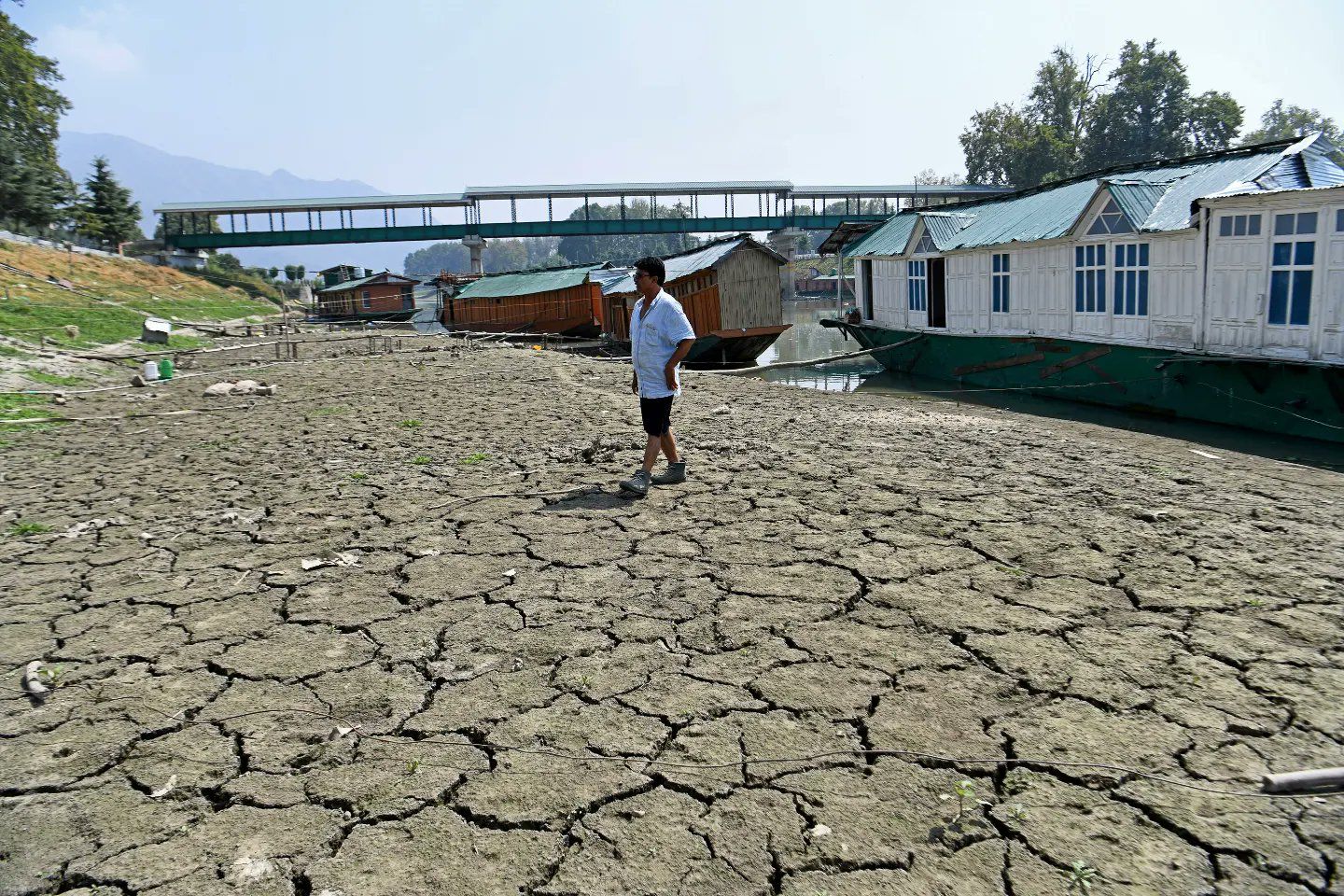Srinagar: With a prolonged dry spell and a record-breaking heat wave affecting Jammu & Kashmir, water levels in the River Jhelum and its tributaries have decreased, causing concern among the population, especially farmers. The government acknowledges that some areas have been affected but assures that this is a temporary situation that cannot persist for long.
 Photograpgh By Basit Zargar
Photograpgh By Basit Zargar
Sanjeev Malhotra, In Charge Chief Engineer of the Jal Shakti department, said that the prolonged dry spell has resulted in reduced water flow in the River Jhelum, Doodh Ganga, and other tributaries.
However, he emphasised that there hasn’t been a significant impact thus far and that the prolonged dry spell is a temporary issue that cannot persist for an extended period.
The Chief Engineer added that once precipitation occurs, conditions will improve on the ground. He also appealed to people to use water judiciously during this prolonged dry spell.
Farmers have expressed concerns about the low water levels, fearing a significant impact on their orchards if the weather situation does not improve.
Notably, parts of J&K continue to experience a prolonged heat wave. Srinagar, the capital of Jammu & Kashmir, and other areas in the valley have recorded record-breaking maximum temperatures in September.